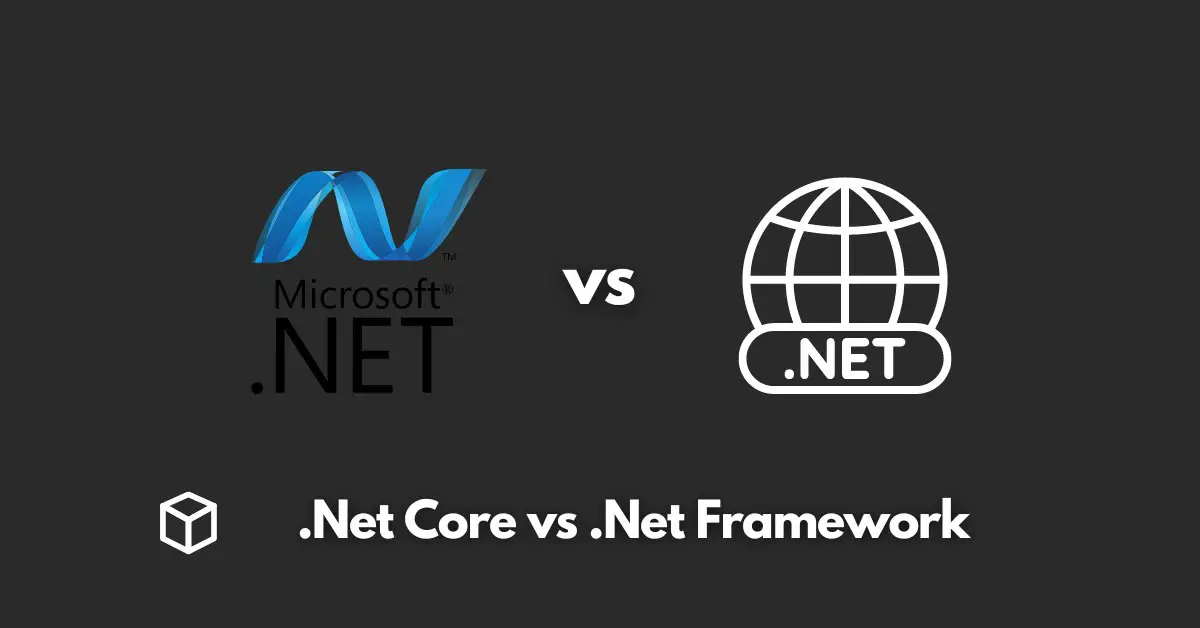As a software developer, you may have heard of .NET Framework and .NET Core.
Both are platforms for developing applications, but what exactly are the differences between the two?
And more importantly, which one should you choose for your next project?
In this article, we will explore the similarities and differences between .NET Framework and .NET Core, and provide guidance on how to choose the best platform for your needs.
.NET Framework
.NET Framework is a software development platform developed by Microsoft.
It is primarily used for building Windows desktop applications and web applications that run on the Windows operating system.
The first version of .NET Framework was released in 2002, and since then it has been updated multiple times to include new features and improvements.
Advantages of .NET Framework
- Widely used and supported: .NET Framework is a mature platform that has been around for almost two decades. As a result, it has a large ecosystem of libraries and tools that developers can use to build their applications. This means that there is a wealth of resources and documentation available to help you learn and use .NET Framework.
- Large ecosystem of libraries and tools: .NET Framework has a large and active community of developers who contribute to its ecosystem by building libraries, frameworks, and tools that can be used with .NET Framework. This means that developers can leverage a wide range of pre-built functionality to speed up development and reduce the amount of code they need to write.
- Good for building Windows desktop applications: .NET Framework is the recommended platform for building Windows desktop applications, as it provides a rich set of features and tools that are optimized for Windows.
.NET Core
.NET Core is a cross-platform, open-source version of .NET Framework.
It was first introduced in 2016, and since then it has been updated multiple times to include new features and improvements.
Unlike .NET Framework, .NET Core is not tied to the Windows operating system and can be used to build applications that run on Windows, macOS, and Linux.
Advantages of .NET Core
- Platform independence: .NET Core is a cross-platform framework, which means that you can build applications that run on multiple operating systems without having to make any changes to your code. This is particularly useful if you want to build an application that needs to run on both Windows and macOS/Linux.
- Improved performance: .NET Core has been designed with performance in mind. It is optimized for modern hardware, and as a result, it is faster and more efficient than .NET Framework. This is particularly true for applications that need to run on multiple cores or in the cloud.
- Smaller app size: .NET Core applications are smaller in size than .NET Framework applications, which makes them easier to deploy and update.
Use cases for .NET Core
- Web development: .NET Core is a great choice for building web applications, as it provides a wide range of features and tools that are optimized for web development. This includes support for modern web development frameworks such as ASP.NET Core, which makes it easy to build web applications that are fast, scalable, and secure.
- Cloud services: .NET Core is a great choice for building cloud services, as it is optimized for running on modern cloud infrastructure. This means that you can build applications that are designed to run in the cloud and take advantage of the scalability, security, and reliability that cloud services provide.
- IoT: .NET Core can be used to build applications that run on IoT devices, such as Raspberry Pi or other small form-factor devices.
Comparison of .NET Framework and .NET Core
While .NET Framework and .NET Core share many similarities, there are also some key differences between the two platforms.
Similarities:
- Both are developed by Microsoft
- Both use the C# programming language
- Both have access to the same set of libraries and frameworks
Differences:
- .NET Framework is primarily used for building Windows desktop applications, while .NET Core is cross-platform and can be used to build applications that run on Windows, macOS, and Linux.
- .NET Framework is not open-source, while .NET Core is open-source.
- .NET Framework has a larger ecosystem of libraries and tools, but .NET Core is more modular and lightweight.
Choosing between the two
When it comes to choosing between .NET Framework and .NET Core, the decision will largely depend on the specific requirements of your project.
Here are some factors to consider when making your decision:
- If you are building a Windows desktop application and you want access to a wide range of libraries and tools, then .NET Framework is probably the best choice.
- If you are building a cross-platform application or a web application, then .NET Core is probably the best choice.
- If you are building a cloud service or an IoT application, then .NET Core is probably the best choice due to its performance and cross-platform capabilities.
Conclusion
In this blog post, we have explored the similarities and differences between .NET Framework and .NET Core, and provided guidance on how to choose the best platform for your needs.
While both platforms have their own advantages and disadvantages, the decision will largely depend on the specific requirements of your project.
Whether you choose .NET Framework or .NET Core, you can be sure that you are working with a powerful and mature platform that will help you build high-quality applications.
References
This blog post written by a technical writer, provides a detailed and in depth information about .Net Core and .Net Framework, explaining the similarities and differences between the two platforms and provide guidance on how to choose the best platform for your needs.
It also includes references to official documentation and other relevant resources that can be helpful for further reading and research.




